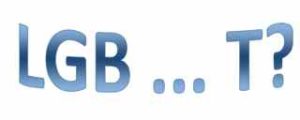 Due to some scheduled meetings here at the Brewery, it’s not looking like Instant Tea will make it down to Commissioners Court this morning, where Resource Center Dallas’ Rafael McDonnell plans to address the court during public comments about the exclusion of gender identity/expression from Dallas County’s new nondiscrimination policy.
Due to some scheduled meetings here at the Brewery, it’s not looking like Instant Tea will make it down to Commissioners Court this morning, where Resource Center Dallas’ Rafael McDonnell plans to address the court during public comments about the exclusion of gender identity/expression from Dallas County’s new nondiscrimination policy.
In lieu of being there, we thought we’d go ahead and post McDonnell’s prepared remarks, which he was kind enough to send over last night. We’ll also be following up on this topic later. But for now, McDonnell’s remarks are after the jump:
Good morning Judge Jenkins and members of the Commissioners Court. My name is Rafael McDonnell and I am with Resource Center Dallas. For nearly 28 years, we have been serving and supporting the lesbian, gay, bisexual and transgender communities in North Central Texas, as well as people living with HIV and AIDS through programs and services benefiting their health and wellness, families and communities, and education and advocacy.
Personally, and on behalf of the center, I want to thank each of you for adding sexual orientation to the county’s nondiscrimination policy. Among Texas political entities, Dallas County now joins the cities of Dallas, Fort Worth, Austin and El Paso in offering these protections. Nationally, over 135 cities and counties offer similar policies. Locally, extra-governmental organizations such as DFW International Airport, Dallas Area Rapid Transit and Austin’s Capitol Metro Transit also provide expanded nondiscrimination protections. You’ve done the right thing by expanding the policy, yet it is missing an important element.
All of the entities I just mentioned, as well as leading local employers including American Airlines and Texas Instruments, offer additional explicit protections for their transgender employees. The verbiage typically used is “gender identity and gender expression.” I’ve brought a handout for you showing the language used by the cities and DFW Airport, as well as the American Psychological Association’s policy statement on transgender non-discrimination.
Some of these terms may not be familiar, so I’d like to explain them. Sexual orientation is who we’re attracted to, who we love, who we build our families and lives with. I have a sexual orientation; so does everybody in this room and on this planet.
Gender identity is a different concept. It goes to the inner question of “who am I” at an internal and personal level. We all have gender identities. In my case, I’m a man; I was born a man. But for members of the transgender community, their birth gender and their identity don’t match.
Gender expression is how we display our gender identity; haircuts, facial hair, clothing, shoes, and so forth. Members of the transgender community seek to have their gender expression match their gender identity. Gender identity and gender expression are not the same as sexual orientation.
Last spring, Resource Center Dallas worked with DART to add transgender protections to its nondiscrimination ordinance; they added sexual orientation protections back in 1995. Last fall, the Center and our colleagues at Fairness Fort Worth approached DFW International Airport to add nondiscrimination protections for the entire LGBT community. It took them a matter of weeks to adopt and implement the new policy.
The Center is a subject-matter expert on the LGBT community. We provide diversity training to business, colleges and universities, and government. Last week, we began a second round of training with the Texas Alcoholic Beverage Commission. From November 2009 through last May we trained all 700 of their employees across Texas; we’re now training all their new employees. We also worked with DISD last fall as the district adopted a comprehensive antibullying policy protecting all students. I’d like to offer this court and key Dallas County officials a training session facilitated by the Center to explore LGBT issues in depth.
I would urge this court to revisit the nondiscrimination policy as soon as possible to add gender identity and gender expression protections. In doing so, you explicitly protect all of Dallas County’s LGBT employees. Statistically speaking, you have transgender employees working for the county. The policy, as it is written now, does not explicitly protect them. By adding these protections, this court sends a strong signal to employers throughout the region that fairness at work is more than a concept on paper; it’s how we do business and live our lives. Thank you for your time.










